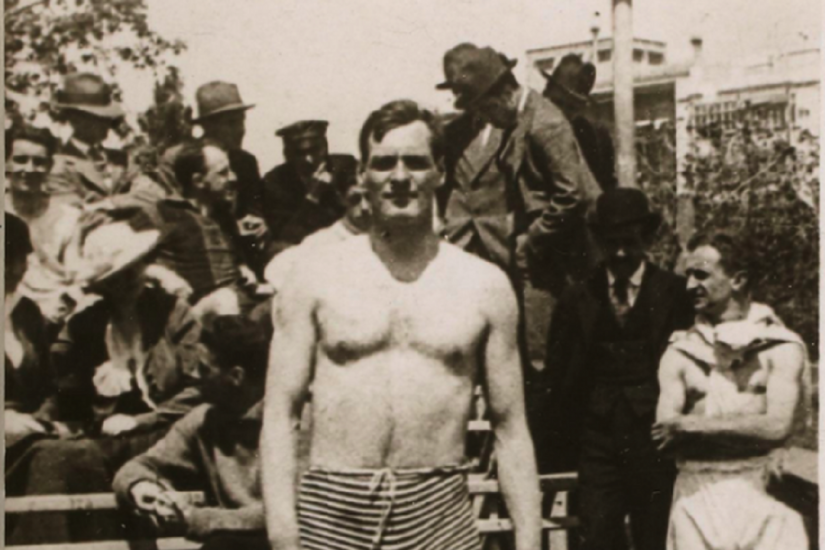When the surrealist hero and sometime pugilist Arthur Cravan vanished off the coast of Mexico at the age of thirty-one, both the man and the circumstances lent themselves to speculation that he’d faked his own death. Born Fabian Avenarius Lloyd in Switzerland to Anglo-Irish parents, Cravan spent his late teens and twenties wandering the globe using different passports, publishing essays and poetry under pseudonyms, competing in boxing matches, and self-mythologizing. “The mysterious Arthur Cravan” was how he introduced himself before stepping into the ring, “the world’s shortest-haired poet, boxer, hotel rat [thief], muleteer, snake-charmer, chauffeur, ailurophile, gold prospector, grandson of the Queen’s chancellor, nephew of Oscar Wilde.”
In early 1917, the year before his putative death, Cravan relocated to New York from Paris to avoid conscription. He was not, however, a conscientious objector, supposedly saying, “But I don’t object! They may all allow themselves to be murdered for aught I care, only they need not expect me to follow suit.
If their collective insanity suggests to them that they must sacrifice their lives for my sake, I will not trouble to stop them.” After America entered the war, he eluded the inquiries of the draft board, and the increasingly pro-war mood of even his bohemian Manhattan milieu, by heading first to Canada and from there to Mexico.
On reaching Mexico City in December, Cravan begged his lover, the poet and artist Mina Loy, to join him in a series of overwrought letters. “Mina,” he wrote, “I can’t believe, I don’t dare believe, that you will abandon me. If you come, I swear to you on my eternal soul that I will never cause you pain and that your life will be sweeter than that of any other woman…I can take care of you. Listen to my plea.”
Loy listened. Not only was she smitten, but like Cravan she was chronically restless, almost matching him in vagabondage.
